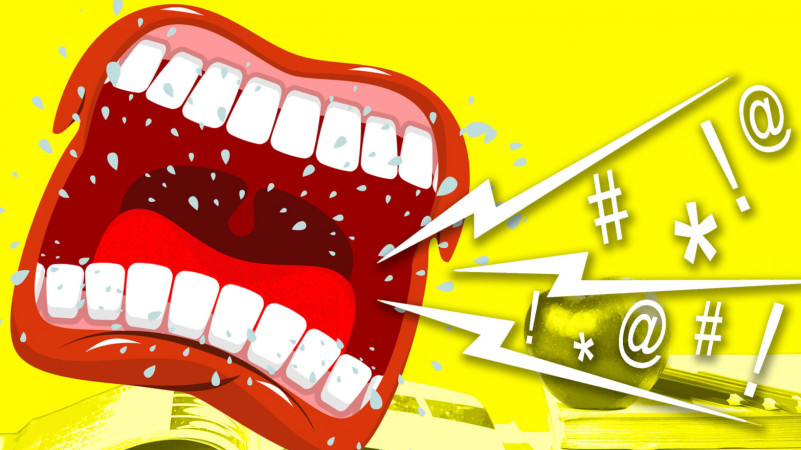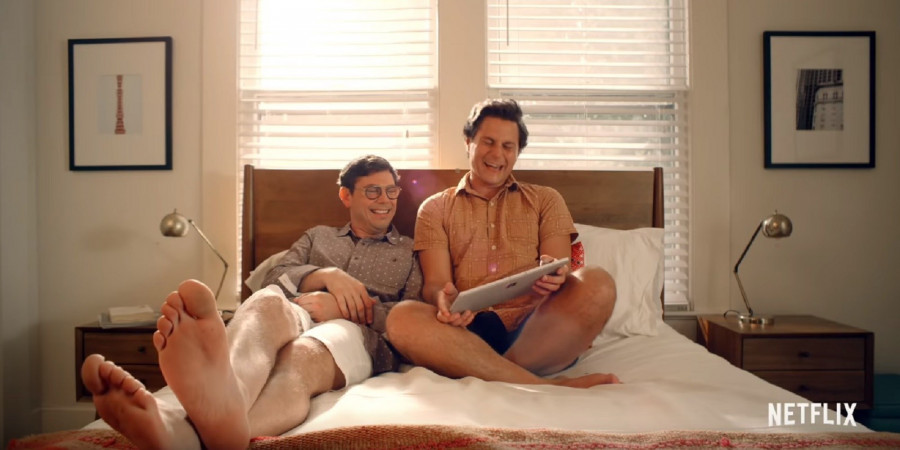What If We Told You That All Males Are Performative?
The 'Performative Male' trend is just another examples of how everyone wants to break free from gender roles
19/Aug/25
2759
What If We Told You That All Males Are Performative?
The 'Performative Male' trend is just another examples of how everyone wants to break free from gender roles.
JAMES FACTORA
A few weeks ago, I was catching up with my friend (and Friend of the Publication) Denny when the conversation turned to the subject of “performative male” memes that had flooded our timelines. We made the requisite jokes (“Performative male contest in my bedroom, stat!” etc.) before chuckling and shaking our heads. Calling men who drink matcha and paint their nails “performative” had always struck me as silly, but of course it was through conversation with another trans person that it would become clearer to me why the trend induces such an eye-roll:. “Cis people come so close to understanding that all gender is performative,” I said to her, “only to turn right back around and reinscribe gender norms.”
The so-called performative male is nothing new. It’s this year’s take on ‘the toxic softboy’ or the ‘male manipulator.’ But in the past few weeks, the meme has reached a fever pitch. There have been meta-ironic “performative male contests” in New York, Chicago, Seattle, and even Jakarta. (I keep thinking to myself, are all of these lookalike contests just drag but for straight people? But that’s a question for another essay.) The Performative Male is essentially, men performing in ways meant to pander to women, downloaded from women’s observations and filtered through The Algorithm. The tools in their arsenal? Matcha, Clairo vinyls, Labubus, painted nails, tote bags, Sally Rooney/Joan Didion/bell hooks (but only ever All About Love) paperbacks — the kinds of signifiers that young modern men might adapt in order to appeal to progressive young women. Supposedly, these are all things that might trick a woman into believing that this man is not like other men. Not so violent. Not so chauvinist. Not so scary to be a subject of desire.
I must admit that I am unpracticed in the ways of heterosexuality (I have literally never experienced it), but I am generally fascinated by the ways that gender has played an outsize role in mainstream meme culture of the 2020s. At the end of 2023, Them managing editor Samantha Allen and I discussed the various gendered memes that dominated that year, like “girl dinner” and the “Sassy Male Apocalypse.” At the time, I posited that the pattern felt akin to the “hipster racism” phenomenon of the Obama era, wherein progressives would make ironically racist “jokes” in order to signal how “post-racial” they were. In today’s supposedly post-sexist era, we’re seeing a compulsory urge to taxonomize everything into the gender binary. And maybe this shouldn’t be surprising. The concept of transgender is more mainstream now than ever before, so it makes sense that these “men are from Mars, women are from Venus” style jokes would spur as the subconscious reactions to a perceived destabilization of the traditional gender paradigm.
To try and get to the bottom of this, I reached out to Judith Butler, the seminal queer theorist who first articulated their theory of gender performativity in their 1990 book, Gender Trouble. Sadly, one of their reps got back to me and informed me that they would have to decline this opportunity “given their other commitments.” Can’t imagine what could possibly be more important than this, but OK.
In Gender Trouble, Butler suggests that “gender is not a noun, but neither is it a set of freefloating attributes.” Instead, gender is “performative,” constituted through “repeated acts within a highly rigid regulatory frame that congeal over time to produce the appearance of… a natural sort of being.” In other words, Butler doesn’t subscribe to the “born this way” notion that gender identity is an inherent, stable truth; rather, what we understand as gender (and sex) is produced through the continual, violent enforcement of a set of norms. “Man” and “woman” are nothing but impossible, symbolic ideals, and yet the power of these fictions is inescapable.
“Performative,” in social media parlance, means something more akin to “virtue signaling.” I’m not here to wag my finger and scold everyone for using the word “wrong,” but I am certainly interested in the implications of the memeification of "performative males.” Meme culture hardly has the same regulatory force as the hundreds of anti-trans laws that have been signed into law over the past several years, but I found it interesting to revisit Gender Trouble and its emphasis on repetition as a key aspect of performativity. After all, what are memes if not meaning created through reiteration? The right wing has certainly succeeded in using meme culture and the internet to reify their own ideas of manhood, and gender as a whole.
Of course, there is some truth to these observations about men who attempt to signal that they are “not like other guys” while still being just as harmful/manipulative as your average man. (I live in Brooklyn.) But the idea of a “performative male” seems to imply that there is such a thing as a non-performative male. It’s the toxic softboys who have been painted as “performative” and not, for example, the bros of the manosphere, who are articulating a violent, explicitly misogynist version of manhood. That certainly doesn’t strike me as more of a “natural” state of “manhood” than the guys who play acoustic guitar and may or may not be pretending to read feminist theory in order to impress or disarm women. Intentionally or not, these memes only reinforce the idea that the manosphere’s version of manhood is the default state of masculinity, and that any variations are an aberration, or worse, a farce.
In the wake of the first Trump election, the #MeToo movement, and the Brett Kavanaugh trials, it seemed as though many (white) straight women were coming to terms with the fact that misogyny remains a dominant cultural force in America. Combined with an increase in queer visibility, thanks to the legalization of same-sex marriage in 2015 and the “trans tipping point” the year prior, straight women saw that there were other possibilities for relationships and embodiment — ones that they could not access. Unless, of course, they were willing to abandon heterosexuality as a whole. It’s what writer Asa Seresin called ‘heteropessimism,’ a term he coined in a 2019 essay in The New Inquiry to describe what was then still a nascent online sentiment. Seresin defined heteropessimism as consisting of “performative disaffiliations with heterosexuality, usually expressed in the form of regret, embarrassment, or hopelessness about straight experience,” adding that it “generally has a heavy focus on men as the root of the problem.”
Now we’re in the midst of Trump 2.0, three years past the overturning of Roe v. Wade, and the Christian right’s decades-long mission to defund Planned Parenthood is only temporarily held off by a court order. Explicit misogynist sentiments have returned to the mainstream in full force, and so naturally, the heteros have remained pessimistic as ever about their condition. But with the rise of trans visibility (thanks in large part to anti-trans legislation and general right-wing scapegoating) in the 2020s, it seems as though cis straight progressives are at even more of a loss when it comes to metabolizing this whole gender thing.
Even though it’s espoused most often by ostensibly woke young people, heteropessimism is actually quite regressive. “The idea of women straining to be good girlfriends for men who won’t put their dirty socks in the washing basket is an amazingly conservative view of the kind of relationships we could be having,” Rachel Connolly writes in The Guardian. Seresin additionally notes that the “anesthetizing force” of heteropessimism has served as effective distraction from the real issues at hand. “If ‘heterosexuality’ becomes shorthand for misogyny, the proper object of critique falls from view,” Seresin writes. (After all, let’s not forget that you do not need to be a man to perpetrate misogyny: one of the people who ruled in favor of overturning the constitutional right to abortion was a woman.)
“To be permanently, preemptively disappointed in heterosexuality is to refuse the possibility of changing straight culture for the better,” Seresin continues.
As silly and absurd as they are, the “performative male” memes and their accompanying IRL contests are just further signs that straight men and women yearn for something better. Yet, they aren’t quite willing to let go of the familiar, an anxiety that is blanketed in layer upon layer of irony. I’m certainly not in the business of suggesting how straight culture might improve. (Again, never been there or done that.) But I do think that cis straight people could learn a thing or two from trans people.
Trans people understand what it’s like to reckon with desires that may seem contradictory on the surface, and to pursue them anyway. Take it from someone whose maleness is more performative than most: I’ve known that I was nonbinary from a pretty young age, but for a long time, I worried that transition would make me a man, and therefore bad. Then, still a little afraid, I started T. Years and years of research could not have possibly prepared me for the way that the world opened up to me, and all that time that I’d spent trying to stifle my desire to transition felt comically futile. What’s more, a few years in, I found that my self-concept had indeed changed. Suddenly, I was more of a man, and I wasn’t a monster, and I was no longer afraid.
What I’m saying is that you can attempt to irony-poison yourself to death, but you can never truly rid yourself of desire, as terrifying as it might feel to face it head on. To many readers of this website, the notion that heterosexuality is “terrifying” might induce an eyeroll, but I do earnestly sympathize with the plight of straights. That plight, however, won’t be solved by reinforcing the same ideas about gender and heterosexuality that the right-wing would like us to believe are immutable. Although playing into familiar scripts might feel like temporary relief, even straight people are no longer satisfied with the way the story ends. If we’re fed up with the old ways, it’s up to all of us, (yes, I’m looking at you, straight women) to write new ones.
This piece was first published on Them.
Powered by Froala Editor



